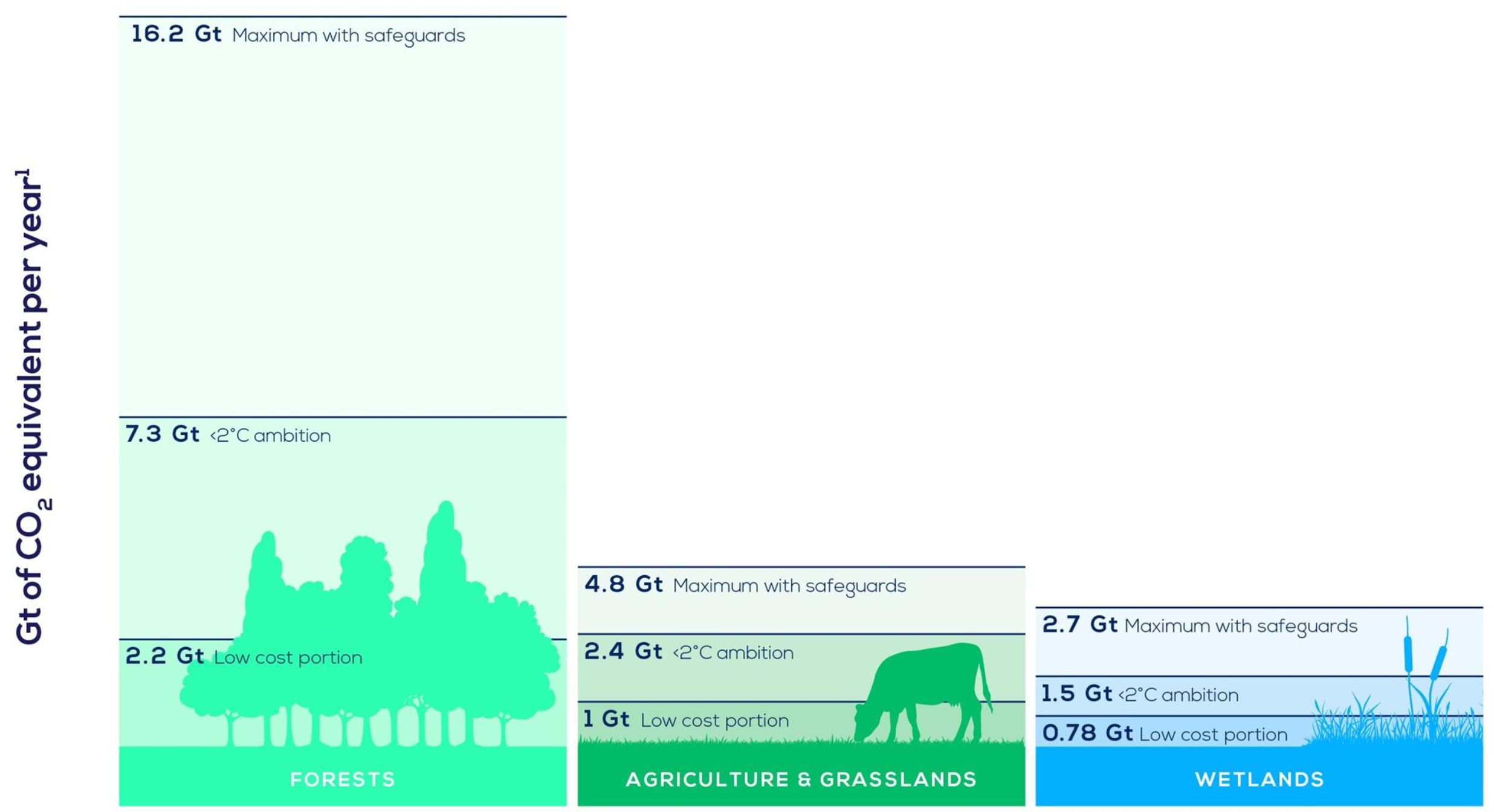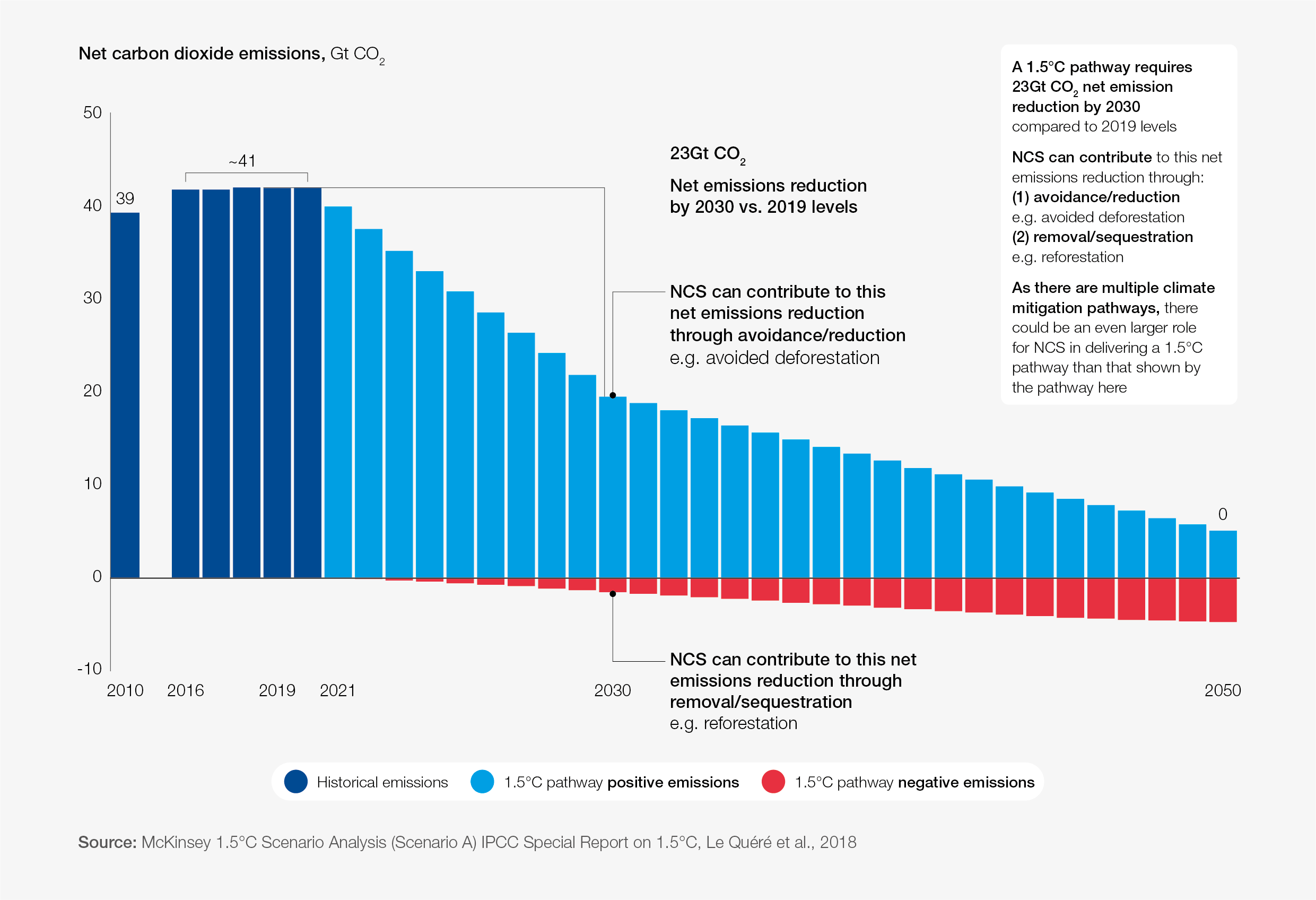This Colombian project is using nature to tackle drought
We need greater investment and innovation to tackle climate change problems.
Image: Unsplash/Kasturi Laxmi Mohit
Stay up to date:
One Trillion Trees
- La Mojana is particularly exposed to climate change, and many of its residents rely on the delta system for their daily lives and livelihoods.
- Replantating wetlands, improved water use, and early-warning systems are being used to reduce strain on water resources and prevent damage to crops, homes and businesses.
- Nature-based solutions are a crucial tool in tackling climate change, with University of Oxford scientists estimating it could limit global warming by up to 0.3°C.
As climate change increasingly makes itself felt with more extremes of temperature and weather, there is often talk of the need for greater investment and innovation to tackle the problems we will all more frequently face. And while this is true, one project in Colombia is also demonstrating how far we can take existing solutions provided to us by Mother Nature.
La Mojana, to the north of the country, is home to a complex delta system particularly exposed to the effects of climate change. The 400,000 inhabitants of the area are largely poor, and dependent on the water systems for their livelihoods.
Access to drinking water is a particular problem, and crops are being damaged by both droughts and floods, affecting the income and lives of many smallholders.
But through a $117-million project, which promotes sustainable ecosystem management, it is hoped communities will be better protected from floods and sustained dry periods.
Wetland protection
Much of the activity focuses on La Mojana’s crucial wetlands, which, in common with many other wetland areas around the world, have been degraded.
Deforestation and loss of these areas makes La Mojana more prone to flooding, and means vital water resources become scarce.
Families have been supported to create nurseries that nurture native trees and plants. Huge replantation projects are helping restore the natural balance to ecosystems. And better local water management – undoing some of the damage caused by agriculture – is helping reconnect and replenish water systems.
Conservation organization, the Wildfowl & Wetlands Trust, says over a third of the world’s wetlands have disappeared since 1970, and 40% of the world’s species are reliant on these ecosystems in some way.
Community-based initiatives like that at La Mojana are key to addressing water mismanagement at a grassroots level. Water scarcity already affects every continent and will become increasingly acute as population growth and urbanization places greater stress on resources.
The project will also promote the use of tools and technologies such as solar power and rainwater harvesting to help address long-term water supply problems. The drinking water supply has been made more secure through an upgraded system of micro-aqueducts which are more climate-resilient.
The aim is also to grow a number of smaller-scale initiatives which will create early warning systems as a way of boosting climate resilience.
Nature has many of the answers
These so-called nature-based solutions, which pull on the ability of the natural environment to protect us from some of the effects of climate change, are seen as a crucial tool in helping us mitigate the worst effects of the climate crisis.

Recent research by a team at the University of Oxford found that nature-based solutions, including the large-scale restoration of ecosystems and improved land management, could cut peak global warming by between 0.1°C and 0.3°C.
What is the World Economic Forum doing on natural climate solutions?
These natural solutions could help remove as much as 10 gigatons of carbon dioxide per year from 2025 onwards – more than the global transportation sector’s annual emissions, the scientists say.
Accept our marketing cookies to access this content.
These cookies are currently disabled in your browser.
Don't miss any update on this topic
Create a free account and access your personalized content collection with our latest publications and analyses.
License and Republishing
World Economic Forum articles may be republished in accordance with the Creative Commons Attribution-NonCommercial-NoDerivatives 4.0 International Public License, and in accordance with our Terms of Use.
The views expressed in this article are those of the author alone and not the World Economic Forum.
Related topics:
Forum Stories newsletter
Bringing you weekly curated insights and analysis on the global issues that matter.
More on Climate ActionSee all
Robin Pomeroy and Natalie Marchant
February 17, 2025
Srivatsa Sreenivasarao and Allison Voss
February 17, 2025
Eric White and Nitin Jain
February 12, 2025
Chris Hagerbaumer
February 12, 2025








